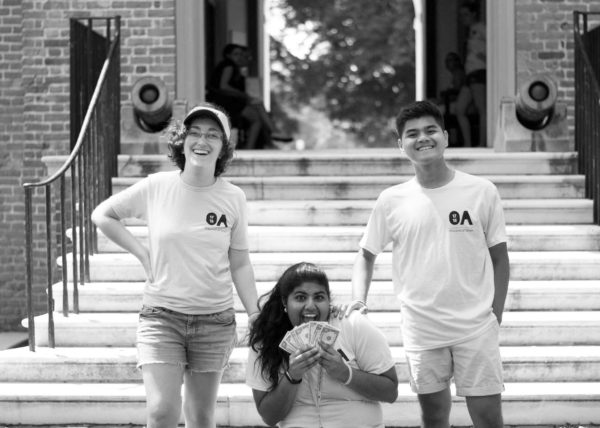Orientation has been the most formative experience of my college life. In 2015, the community building and discussions in which I participated as an incoming freshman affirmed my budding identity as a TWAMP, and the connections I made with my hallmates gave me an intense feeling of belonging before the semester even began.
As a sophomore in 2016, my new perspective as an Orientation Aide taught me to see the lengths to which the Office of First Year Experience goes to ensure new students find a supportive home in this community. It also profoundly influenced the way I approach difficult conversations. Facilitating hall debriefs on relationships, communication and intersectionality made me a more supportive and engaged listener. I wholeheartedly believe that experience has led to more trust and vulnerability, at least on my part, in my friendships. Coming out of my first year as an OA, it was clear that I’d drunk the neon Kool-Aid.
Going back this year was different. Donning the bright green t-shirt felt complicated in ways that I hadn’t anticipated; I’ve formulated lots of opinions about my school in the past year, and not all of them are positive. How am I supposed to maintain my contractual enthusiasm when I’m armed with stories of friends not getting adequate support from various parts of the school? How can I tell dozens of new students that they’re beginning the best year of their lives when I know that blanket statement won’t necessarily be true for all of them? How many “deny the cult” memes can I casually reference en route to Sadler without consequence?
How can I tell dozens of new students that they’re beginning the best year of their lives when I know that blanket statement won’t necessarily be true for all of them?
Orientation can also be difficult in extremely personal ways. This year, I struggled to maintain physical energy in the humidity, and flaring anxiety during the first few days often made me feel inadequate or out of place.
However, the beauty of Orientation is the community it continues to foster despite these challenges. Every year, I am amazed by the close friendships so quickly formed through the excitement and exhaustion of the busy schedule. New students and OAs alike are thrown into a five-day whirlwind, and the only way any of us gets through it is by leaning on each other. When my confidence was at its lowest, my Co-OAs lifted me up, reminding me how much I love my position and fueling my determination to continue. When one of my residents opened up about homesickness during a hall meeting, the immediate display of support from new friends illustrated exactly why Orientation is important to me.
The bonds that form between hallmates and staff members, between people of profoundly different experiences, is inspiring.
Orientation will always be special to me because, in working to carve out a home for new students, I rediscover home for myself.
No part of Orientation is perfect. OAs must navigate a nuanced role, and it’s impossible for a small army of upperclassmen dressed in safety green to communicate the same message to over 1,000 unique individuals. However, our love for our school unites us despite this knowledge. By the end of our week together every year, I am consistently bursting with pride for my Orientation Area Directors, my staff and my residents. Orientation will always be special to me because, in working to carve out a home for new students, I rediscover home for myself.
“Ooh, eat Wawa, BroMon’s got the power, baby, ooh!”
Email Lydia Funk at llfunk@email.wm.edu

